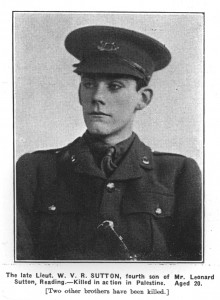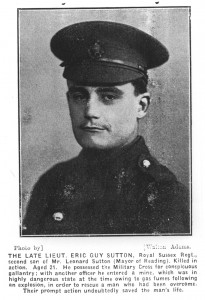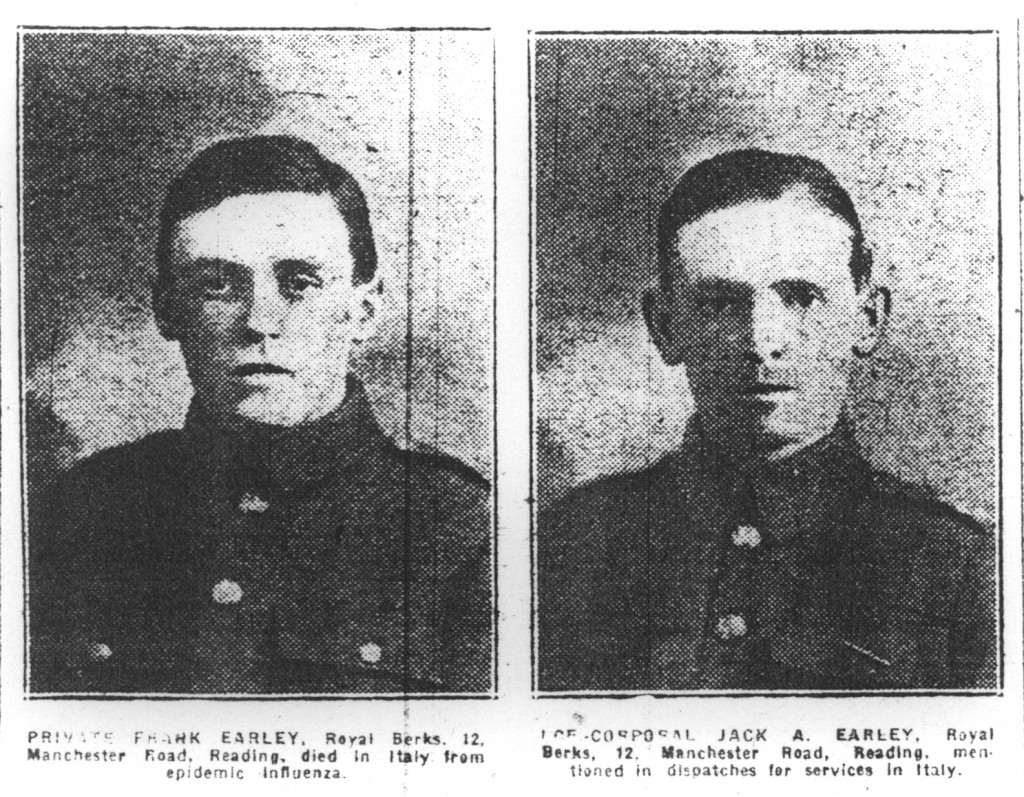Frank Washbourne Earley
Private 200566 ‘D’ Company
1st/4th Royal Berkshire Regiment
Frank Earley was the son of Harry and Margaret Earley, of 12 Manchester Road, Reading. Harry worked at the biscuit factory. Before the war he worked as a cleark in the Borough Accountant’s Office and his brother Jack who enlisted in the same regiment worked, for the County Council. It is not known exactly when Frank and his brother joined up but they enlisted in Reading.
The 1st/4th battalion the local territorial force, arrived in France in March 1915. Several of Frank’s letters were published in the Reading Chronicle. In his first letter published in April 1915 Frank writes:
‘We are sleeping in barns, and have moved several times since we have been over here.’
Frank’s experiences at Ploegsteert (know by the British soldiers as Plugstreet ) illustrate what life was like in this largely ‘quiet sector’ where the ‘Saxons’, in the trenches opposite, had a mild reputation and sniping and firing on working parties was their main preoccupation:
“We have been in action and are having a rest at the present time. We were in the trenches 24 hours and I was on outpost with two other of our chaps. It was a bit of an experience, as we were only about 100 yards from the Germans. They send up flares at night and light up the surroundings just like daylight, and if you move your foot or any part of your body you get a shower of bullets round you. The worst part of trench fighting, I think, is getting in and out of the trenches, as once you are in it is fairly safe except, of course, if they shell the trenches accurately. Then it must be hell upon earth. They tried to shell us with lyddite, but they did not find out our trench, although they found out one of the others.”
Frank served throughout the Somme campaign and during the Third Battle of Ypres in 1917. No information has been found to indicate that Frank was wounded during any of these campaigns and it must be assumed that he got away unscathed. Having spent a bloody time at Ypres during the summer and autumn, the men were preparing for their next action which they thought would be at Cambrai. They were all surprised when the 48th Division was directed to Italy. Various actions took place during their time in Italy which cannot be gone into in the space available here however, generally the time was fairly quiet. In June 1918 the Germans stirred up the sleepy Austrians opposite the 48th Division to launch an attack which in the event turned out to be the last serious attack for the division. However, whilst the fighting raged, Frank Earley, veteran of so many famous battles, died, not on the battlefield but in a hospital bed of the deadly influenza virus that was sweeping through the ranks. Frank had been ill about four days before his death.
Frank had been home on leave at Easter just a few weeks before his death. Frank was aged 21 or 22, depending on the source of the information, when he died on 13 June 1918. He is buried in the Montecchio Precalcino Communal Cemetery Extension, Italy, location Plot 2, Row C, Grave 3.
Frank had three older brothers and it is believed that they all survived the war because only Frank’s name is recorded on local war memorials. Jack (real name John )reached the rank of Lance Corporal and was mentioned in despatches by General Plummer. Brother Albert who was 12 years older than Frank served in the Royal Engineers and Alfred, 10 years older, served in the Royal Naval Air Service.
Frank was a popular young man and an active member of St. Bartholomew’s Church. He sang in the choir and was a member of the Church Lads’ Brigade, he is remembered on the church war memorial.


